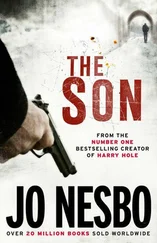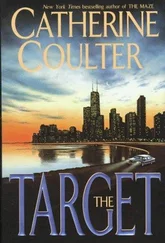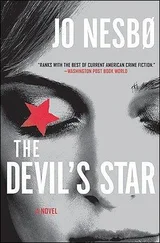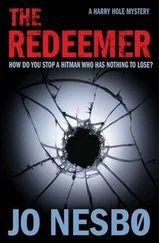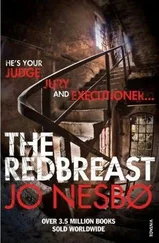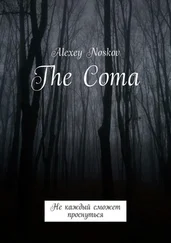Jo Nesbo - The Thirst
Здесь есть возможность читать онлайн «Jo Nesbo - The Thirst» весь текст электронной книги совершенно бесплатно (целиком полную версию без сокращений). В некоторых случаях можно слушать аудио, скачать через торрент в формате fb2 и присутствует краткое содержание. Год выпуска: 2017, ISBN: 2017, Издательство: Random House, Жанр: Триллер, на английском языке. Описание произведения, (предисловие) а так же отзывы посетителей доступны на портале библиотеки ЛибКат.
- Название:The Thirst
- Автор:
- Издательство:Random House
- Жанр:
- Год:2017
- ISBN:9781911215288
- Рейтинг книги:5 / 5. Голосов: 1
-
Избранное:Добавить в избранное
- Отзывы:
-
Ваша оценка:
- 100
- 1
- 2
- 3
- 4
- 5
The Thirst: краткое содержание, описание и аннотация
Предлагаем к чтению аннотацию, описание, краткое содержание или предисловие (зависит от того, что написал сам автор книги «The Thirst»). Если вы не нашли необходимую информацию о книге — напишите в комментариях, мы постараемся отыскать её.
The Thirst — читать онлайн бесплатно полную книгу (весь текст) целиком
Ниже представлен текст книги, разбитый по страницам. Система сохранения места последней прочитанной страницы, позволяет с удобством читать онлайн бесплатно книгу «The Thirst», без необходимости каждый раз заново искать на чём Вы остановились. Поставьте закладку, и сможете в любой момент перейти на страницу, на которой закончили чтение.
Интервал:
Закладка:
Oleg nodded. ‘One other thing,’ he said.
‘Yes?’
‘Steffens called. It’s Mum.’
It felt like an iron claw was squeezing Harry’s heart, and he stopped breathing.
‘She’s woken up.’
33
THURSDAY MORNING
‘YES?’
‘Anders Wyller?’
‘Yes.’
‘Good morning, I’m calling from the Forensic Medical Institute.’
‘Good morning.’
‘It’s about that strand of hair you sent for analysis.’
‘Oh?’
‘Did you get the printout I sent you?’
‘Yes.’
‘Well, that isn’t the full analysis, but as you can see there’s a link between the DNA in the hair and one of the DNA profiles we registered in the vampirist case. To be more precise, DNA profile 201.’
‘Yes, I saw that.’
‘I don’t know who 201 is, but we do at least know that it isn’t Valentin Gjertsen. But seeing as it’s a partial match and I haven’t heard anything from you, I just wanted to make sure you’d got the results. Because I’m assuming you want us to complete the analysis?’
‘No, thanks.’
‘No? But—’
‘The case is solved, and you’ve got a lot of other work to be getting on with. By the way, was that printout sent to anyone else but me?’
‘No, I can’t see that there was any request to that effect. Do you want—?’
‘No, there’s no need. You can close the case. Thanks for your help.’
PART THREE
34
SATURDAY DAYTIME
MASA KANAGAWA USED the tongs to lift the red-hot iron from the oven. He put it on the anvil and started to beat it with one of the smaller hammers. The hammer was the traditional Japanese design, with a head that stuck out at the front in a sort of gallows shape. Masa had taken over the little smithy from his father and grandfather, but like plenty of the other smiths in Wakayama he had found it a struggle to make ends meet. The steel industry, which had long been the backbone of the city’s economy, had moved to China, and Masa had had to concentrate on niche products. Such as the katana , a samurai sword that was particularly popular in the USA, and which he produced to order for private customers all over the world. Japanese law dictated that a sword-smith needed a licence, must have served a five-year apprenticeship, and was only permitted to produce two long swords per month, all of which had to be registered with the authorities. Masa was just a simple smith, who made good swords for a fraction of the price charged by the licensed smiths, but he knew he could get caught, so kept a low profile. He neither knew nor wanted to know what his clients used the swords for, but he hoped it was for exercise, for decoration or collecting. All he knew was that it helped feed him and his family, and enabled him to keep the little smithy running. But he had told his son that he ought to find a different profession, that he ought to study, that being a smith was too hard and the rewards too meagre. His son had followed his father’s advice, but it cost money to keep him at university, so Masa accepted whatever commissions he was offered. Such as this one, to make a replica of a set of iron teeth from the Heian period. It was for a client in Norway, and this was the second time he had ordered the same thing. The first time was six months ago. Masa Kanagawa didn’t know the client’s name, he just had the address of a post office box. But that was fine, the goods had been paid for in advance and the price Masa had asked for was high. Not just because it was complicated work, making the little teeth to match the design the customer had sent him, but because it felt wrong. Masa couldn’t explain why it felt more wrong than forging a sword, but when he looked at the iron teeth they made him shudder. And as he drove home along Highway 370, the singing road where the carefully designed and constructed ridges in the surface created a tune as the tyres rolled over them, he no longer heard it as beautiful, soothing choral music. He heard a warning, a deep rumble that grew and grew until it became a scream. A scream like a demon’s.
Harry woke up. He lit a cigarette and reflected. What sort of awakening was this? This wasn’t waking up to work. It was Saturday, his first lecture after the winter break wasn’t until Monday, and Øystein was looking after the bar today.
It wasn’t waking up alone. Rakel was lying by his side. During the first few weeks after she came home from hospital, whenever he lay and looked at her sleeping he had been terrified that she wouldn’t wake up, that the mysterious ‘it’ that the doctors hadn’t identified was going to come back.
‘People can’t cope with doubt,’ Steffens had said. ‘People like to believe that you and I know, Harry. The accused is guilty, the diagnosis is definite. Admitting that we have doubts is taken as an admission of our own inadequacy, not an indication of the complexity of the mystery or the limitations of our profession. But the truth is that we will never know for certain what was wrong with Rakel. Her mast cell count was slightly elevated, so at first I thought it was a rare blood disease. But all the signs are gone and there’s a lot to suggest that it was some sort of poison. In which case you don’t have to worry about it recurring. Just like these vampirist murders, wouldn’t you say?’
‘But we know who killed those women.’
‘You’re right. Bad analogy.’
As the weeks passed, the gaps between him thinking about Rakel having a relapse grew longer.
As did the gaps between him thinking there had been another vampirist killing every time the phone rang.
So it wasn’t waking up full of angst.
He had had a few of those after Valentin Gjertsen died. Oddly enough, not while Internal Investigations were interviewing him, before eventually concluding that Harry couldn’t be blamed for firing in an uncertain situation with a dangerous murderer who had himself provoked the response. It was only after, then, that Valentin and Marte Ruud started to haunt him in his dreams. And it was her, not him, who whispered in his ear. That’s why you’re also being fooled. He had told himself that it was other people’s responsibility to find her now. And as the weeks turned to months, their visits had become less frequent. It helped that he had got back into his daily routine at Police College and at home, and that he wasn’t touching alcohol.
And now, at last, he was where he ought to be. Because this was the fifth sort. Waking up content. He would copy and paste yet another day, with his serotonin level exactly where it should be.
Harry crept out of bed as quietly as he could, pulled on some trousers and went downstairs, inserted Rakel’s favourite capsule into the espresso machine, switched it on and went out onto the steps. He felt the snow sting pleasantly under his bare feet as he breathed in the winter air. The white-clad city was still in darkness, but a new day was blushing off to the east.
Aftenposten was saying that the future looked brighter than the news might make us think. That in spite of the increasingly detailed picture the media were painting of murders, wars and atrocities, recently published research showed that the number of people being murdered was at a historic low, and sinking. Yes, one day murder might even become extinct. Mikael Bellman, whose appointment as Justice Minister was going to be confirmed next week, according to Aftenposten , had commented that there was obviously nothing wrong with setting ambitious targets, but that his personal target wasn’t a perfect society, but a better one. Harry couldn’t help smiling. Isabelle Skøyen was a talented prompt. Harry looked again to the sentence about murder one day becoming extinct. Why was this long-term claim triggering the anxiety he had to admit he had – in spite of his own contentment – felt for the past month, possibly longer? Murder. He had made it his life’s work to fight murderers. But if he succeeded, if they all disappeared, wouldn’t he disappear with them? Had he not buried a part of himself with Valentin? Was that why Harry had found himself standing by Valentin Gjertsen’s grave just a few days ago? Or was there some other reason? What Steffens had said about not being able to cope with doubt. Was it the lack of answers that was nagging at him? Damn it, Rakel was better, Valentin was gone, time to let go now.
Читать дальшеИнтервал:
Закладка:
Похожие книги на «The Thirst»
Представляем Вашему вниманию похожие книги на «The Thirst» списком для выбора. Мы отобрали схожую по названию и смыслу литературу в надежде предоставить читателям больше вариантов отыскать новые, интересные, ещё непрочитанные произведения.
Обсуждение, отзывы о книге «The Thirst» и просто собственные мнения читателей. Оставьте ваши комментарии, напишите, что Вы думаете о произведении, его смысле или главных героях. Укажите что конкретно понравилось, а что нет, и почему Вы так считаете.

